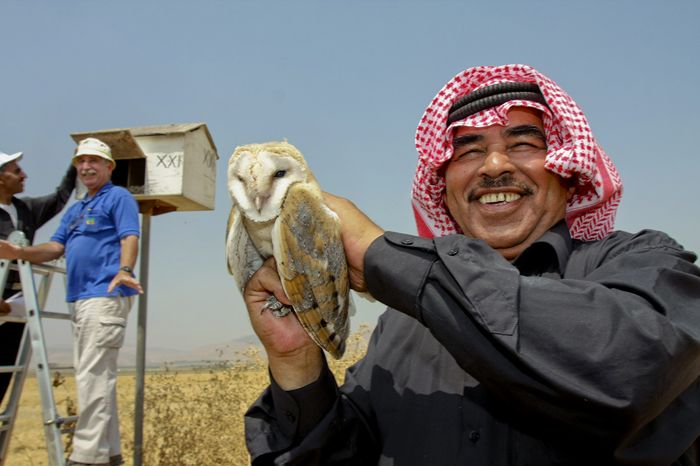 Humanity is facing a biodiversity crisis. To solve environmental problems, we bring people from Israel, Jordan, and the Palestinian Authority to the same table. Conservation efforts are beneficial for all communities and facilitate constructive dialog across divides in conflict zones. This pleads for the integration of nature conservation into peacebuilding interventions.
Humanity is facing a biodiversity crisis. To solve environmental problems, we bring people from Israel, Jordan, and the Palestinian Authority to the same table. Conservation efforts are beneficial for all communities and facilitate constructive dialog across divides in conflict zones. This pleads for the integration of nature conservation into peacebuilding interventions.
In the Middle East, the essence of the project ‘Birds Know No Boundaries’ is threefold: a) to convince individuals and communities to protect their environment in their own country; (b) to favor communication between countries to foster experience; and (c) to use the project to raise awareness about environmental and peacebuilding issues. The intensive use of agricultural pesticides throughout the Middle East poses a grave threat to the environment and its biological diversity.
The Jordan Valley, located at the junction of Europe, Asia, and Africa, is an important diversity hotspot and is an important bottleneck on the world’s principle bird migration routes [Bruderer, B. and Liechti, F. ,1995). To protect birds migrating from Europe and Asia from poisoning, we developed a project to replace pesticides with biological pest control agents in agricultural fields. Israeli, Jordanian, and Palestinian farmers participate in this joint integrative pest management project with the ultimate aim of promoting more sustainable and environmentally friendly farming habits. Barn owls (Tyto alba) and kestrels (Falco tinnunculus) are common throughout Israel, Jordan, and the Palestinian Authority, especially in agricultural areas. Each pair of barn owls produces up to 11 offspring, which eat between 2000 and 6000 rodents per year, making them an efficient alternative to pesticides for the farmers.
↧
The Role of Nature Conservation in Peacebuilding
↧